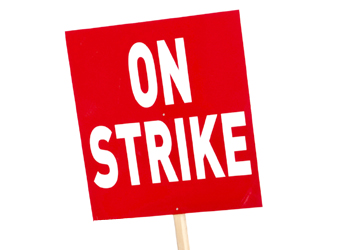

On this day in labor history, the year was 1952.
That was the day 100,000 oil refinery workers went on strike.
The work stoppage was called by a coalition of 22 unions, including AFL and CIO affiliates and independent unions.
They demanded a 25-cent hourly wage increase with shift differentials.
Shutdowns began at once and picket lines went up as soon as procedures were safely completed.
The strike threatened to cut production in half.
Union leaders called all but California refinery workers out, who were central to the war effort in Korea.
Oil barons had given refinery workers the run around for eight months during contract negotiations.
The union had even postponed the original strike date in March to give Federal Mediation a chance at effecting a settlement.
When this failed, President Truman brought the case to the Wage Stabilization Board, which issued a ruling favorable to the industry.
Eighty companies demanded separate hearings for all 200 bargaining units involved.
The union wanted one hearing for all.
Even after this victory for the oil companies, they then refused to attend the hearings!
When the Board threw up its hands in mid-April, the new strike deadline was set.
Eight days into the strike, the Board ordered oil workers back to work, which they flat out refused.
The Oil Workers Union stated “Strikers are fighting against a stacked deck… if corporation executives are permitted to ignore workers needs, then to manipulate the government so the right to strike is denied, collective bargaining will be destroyed.”
The Board then set a 15-cent an hour wage cap and shift differentials. Workers were back on the job by the end of the month, having avoided possible Taft-Hartley actions from President Truman.
More Episodes
All Episodes>>You may also like
Creat Yourt Podcast In Minutes
- Full-featured podcast site
- Unlimited storage and bandwidth
- Comprehensive podcast stats
- Distribute to Apple Podcasts, Spotify, and more
- Make money with your podcast











